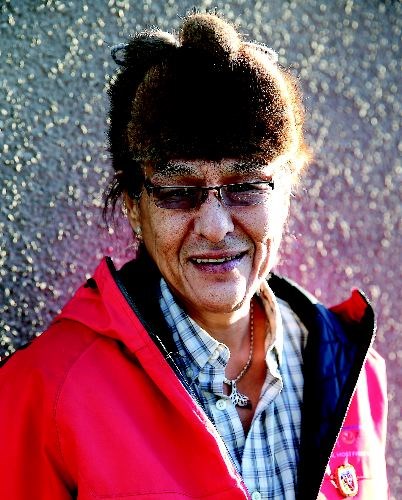While in London, Ontario in 1993 during an aboriginal training program for journalism, Bernard Andreason, 54, got the news he was HIV positive.
Andreason got word that he was positive when he was in a drug and alcohol recovery program that required blood tests to be done every six months.
"People were scared of contracting AIDS back then," said Andreason. "The doctor told me 'I have good news and bad news, the good news is you don't have AIDS, the bad news is you have the virus that causes AIDS and that is HIV'. I went into shock and I don't really remember the few days after that. I do remember I asked the doctor how long I had to live and he said if I took good care of myself I would probably live another 10 years and it's been over 22 years now."
Andreason attributes his good health now to taking care of himself and the advancements in medications for HIV-positive people. Not only has the medication improved but for Andreason it's also been whittled down from six pills to one a day.
Andreason moved from Ontario to Vancouver where there was more research being done with HIV positive First Nations people as well as support for those afflicted with the disease.
From Vancouver, Andreason moved to Prince George in 2002.
Andreason planned on studying anthropology at the University of Northern B.C. but he only got one semester into the course before life - or death - got in the way. Andreason said his father passed away and he dropped out.
After that Andreason found his way to Positive Living North: No khe yoh t'sih'en t'sehena Society, which provides support, awareness education and prevention services to people living with, affected by and at-risk for HIV/AIDS/HCV - Hepatitis C virus.
"I was glad Positive Living North was there because when I moved to Prince George I really needed a lot of support," said Andreason, who was asked to be on the board of directors and served for about five years.
Now Andreason is involved with the Northern HIV/AIDS Coalition, which meets on a quarterly basis to discuss ways to prevent HIV from spreading in First Nations communities in Northern B.C.
"We try to meet on reserve and we go into the communities for two or three days and we have our meetings right in the community so the members can come and see what's happening around HIV and AIDS and how we can prevent it from spreading through the First Nations communities," said Andreason.
"And some First Nations people want to go home when they are first diagnosed so we try to educate as many people in the community so the people who are diagnosed can go home and know they have support."
Andreason is part of Positive Living North's Frontline Warrior program, a positive prevention project that started about eight years ago where people living with HIV share their stories to help prevent the spread of HIV.
The Frontline Warriors talk to students in secondary schools, people living on reserves, and any other organization that wishes to hear from them.
"We want people to know that HIV is not the end of the world," said Andreason.
"We want to educate as many people as we can and we go to local schools, reserves and community centres - anybody who would accept us and we talk about what' it's like living with HIV from a First Nations perspective.
"I let them know how many years I have been living with HIV and that there is support now for First Nations around HIV and their status and let them know if they take really good care of themselves they can live with HIV for a long time and live a healthy life. And they don't need to be ashamed of being HIV positive."
This week is HIV/AIDS Awareness Week in Canada, with World AIDS Day on Tuesday, which also launches Aboriginal AIDS Awareness Week.



